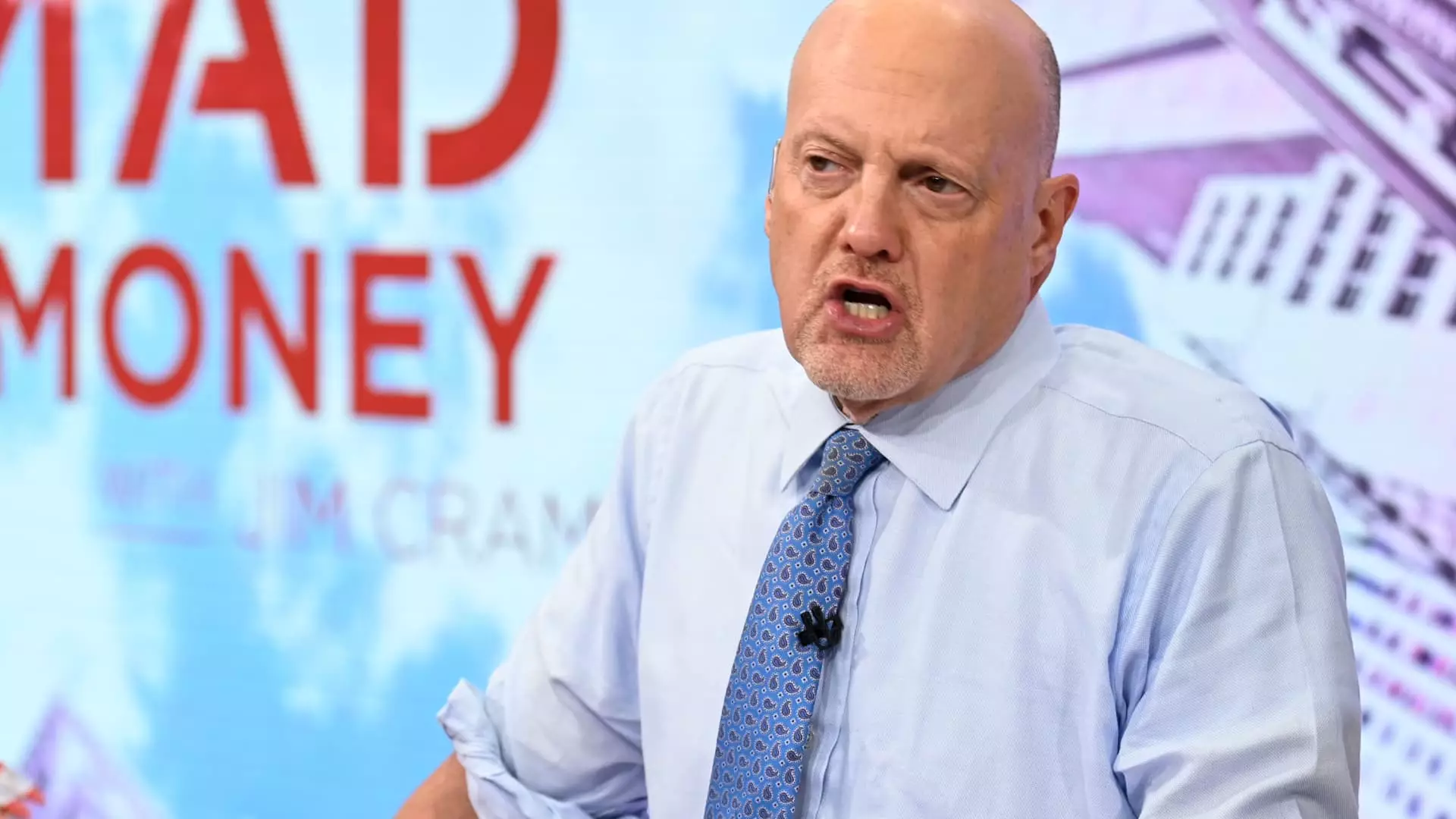In a world increasingly dominated by interconnected economies, President Donald Trump’s trade tariffs have started to set off alarm bells—not just among investors but within the financial heart of the nation. It’s no secret that the stock market relies heavily on clarity and stability; however, Trump’s aggressive tariff policies have injected uncertainty and volatility, delivering a staggering blow to global stocks for consecutive days. The ramifications are not just numbers on a screen; they translate into real-world consequences that ordinary Americans can feel in their wallets.
Trump’s recent tariff imposition, far from serving as a tool for economic rebirth, plays more like a ticking time bomb. CNBC’s Jim Cramer recently highlighted the gravity of the situation, emphasizing that the upcoming earnings reports from major companies—particularly banks—will serve as a revealing litmus test for how these entities are grappling with the fallout. The expectation is unsettling: businesses that should be thriving find themselves navigating choppy waters, replete with challenges that have little to do with their internal business strategies.
The Uncertainty of Economic Signals
Despite the ongoing twister of economic indicators, Cramer argues that the true direction of the market depends tightly on Trump’s next moves. This dynamic has led to a precarious stalemate where investors can only speculate whether relief will come from international partners or escalate tensions further—potentially spiraling towards a Black Monday-esque crash reminiscent of 1987. When the President of the United States wields the power to calm or exacerbate investor fears, the country’s financial future hangs delicately in the balance.
It’s undeniably problematic that economic health is being held hostage to an administration that often seems oblivious to the long-term ramifications of their decisions. The logic behind implementing tariffs—meant to protect American jobs and promote domestic production—has a dress rehearsal that rarely plays out in the real world. Individuals can’t eat slogans or patriotism; they need meaningful, actionable policies that foster growth rather than drag businesses into a tumultuous abyss.
The Consumer Price Index as a Barometer
Next week’s consumer price index (CPI) report only heightens the sense of looming dread. As inflation rises, the cost of living becomes an unbearable weight for American families, and Trump’s tariffs are acting like a catalyst for these price hikes. When you are forced to choose between the necessities of life and artificially inflated costs, economic health doesn’t just come under pressure—it crumbles. This is more than a personal financial issue; it becomes a direct assault on the working class that the current administration has vowed to protect.
Cramer reflects that sticky inflation means the Federal Reserve faces daunting questions on interest rates. Should they react aggressively by cutting rates, or will they be compelled to stand pat? The delicate dance between reactiveness and proactiveness in economic policy could have lasting effects. Thus, the specter of Trump’s trade policies looms larger than ever, damaging any forward momentum the economy might have had.
The Vulnerability of Retail Giants
Companies across a spectrum of industries are already feeling the sting of tariffs, including household names like Levi Strauss and Walgreens, whose earnings reports loom like thunderstorms on the horizon. These firms must navigate uncharted waters where their geographic supply chains are at risk from both tariffs and heightened operational costs. The anxiety around how these companies will perform in the wake of increasing pressure from both consumers and shareholders is palpable.
Cramer points out how Levi Strauss, once a robust symbol of American manufacturing, may find its stock squeezed harder than ever by international trade realities. The very essence of capitalism hinges on adaptability, but can these corporations bend without breaking? The unpredictable nature of tariffs becomes a dark cloud overshadowing what should be days of economic promise.
The Ripple Effects on the Broader Economy
As the earnings cycle unfolds, it’s crucial to comprehend that the repercussions of Trump’s tariff measures extend beyond immediate financial markets. Rising costs will likely resonate through various sectors, washing over suppliers and trickling down to the consumer level. Individuals aren’t simply statistics; they are real people whose financial stability is threatened by poor policy decisions.
In an economy that thrives on interconnectedness, protectionist measures detonate a chain reaction that could lead to dire repercussions. Remember the larger picture; for every job gained in one sector, more than one is often lost in another. Could it be that the protectionist approach results in net losses rather than gains? The specter of what this portends for the nation’s economic future is not just uncertain—it’s downright alarming. The question looms large as fiscal decisions are shaped by impulses rather than informed strategy: what will it take for a reality check to be undertaken in the corridors of power?

